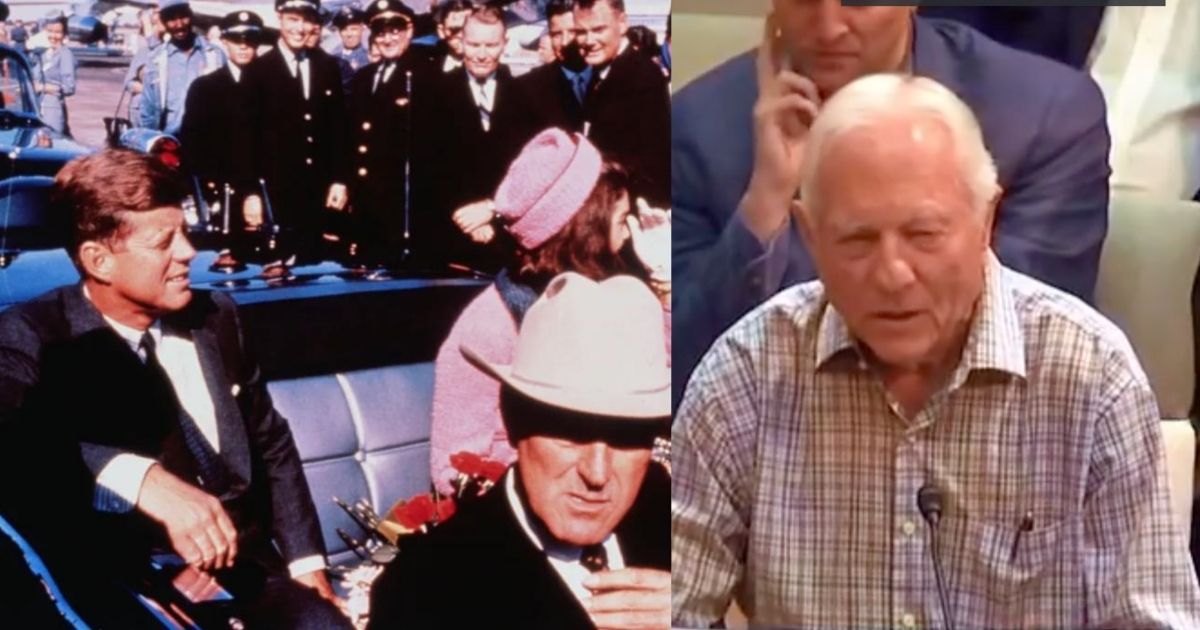It has been more than 60 years since the assassination of President John F. Kennedy. However, the mystery surrounding the incident still has the public in its grip. Now there is a new voice that has entered the conversation.
Dr. Don Curtis was one of the young emergency room physicians who was present at Parkland Memorial Hospital when JFK was brought in. He has now stepped forward with first-hand testimony that may shift the narrative.
In recent hearings before the House Oversight Committee, Dr. Curtis talked about the day of the assassination. He shared a few details that were never brought out to the public before and were never mentioned. These details shed light on what he observed that day in November 1963.
Dr Curtis was one of the doctors on call at the time and had direct involvement in the emergency treatment of the President. Yet, he was never called to testify by the Warren Commission.
His testimony has been long overdue. And his statement has added fuel to ongoing suspicions and questions. There have always been doubts and several missing links in the official account of Kennedy’s death.
“Dr. Donald Curtis was a resident doctor in training at Parkland Hospital in Dallas who tried to save the fatally wounded JFK. When called to testify about what he saw, Curtis was “terrorized” by the Warren Commission. At 88 years old, he tells his story to Congress TODAY.”… pic.twitter.com/n34twgvZdn
— Heal the Divide (#RFKJr Fan Page) (@Rfk4POTUS) May 20, 2025
One of the most controversial elements of the Warren Commission was the Magic Bullet Theory. This theory suggests that there was a single bullet that hit President Kennedy on his neck, exited his body and then entered Texas Governor John Connally. This bullet was held responsible for several wounds on the governor’s body.
The commission had claimed that this lone projectile explained the sequence of wounds observed in both men.
However, Dr. Curtis directly disputes this theory. He stood firm on his theory that there was no magic bullet that struck the president or governor. He gave a statement that he recalled seeing a wound to the president’s throat.
Dr. Don Curtis, the Parkland doctor who treated JFK, just told Congress:
“The two bullets that killed President Kennedy came from the front.”
He said Oswald did not fire the fatal shots.
“The wounds are not consistent with the government’s findings.”
This changes everything. pic.twitter.com/sgBUftbok6— Derek ₿anas (@NewThinkTank) May 23, 2025
This was in addition to the massive head injury that ultimately proved fatal. He then argued that wounds on the President’s body are inconsistent with the single-bullet explanation. He then explained that he believed that there were multiple gunshots.
Dr. Curtis proposed a far more complex scenario based on his first-hand experience. He believes that there were at least four shots fired during the assassination. This would indicate that there were more than one shooter. This statement completely dismantles the Warren Commission’s case.
According to Dr. Curtis, the bullet trajectories and nature of the wounds imply that bullets came from more than one direction.
These statements of more than one bullet and more than one gunman have reignited one of the biggest political controversies- Was the Kennedy Assassination a conspiracy?
His statements and assertions are consistent with long-standing skepticism among researchers and the public. Official investigations have consistently maintained that Lee Harvey Oswald acted alone; however, Dr. Curtis’s claims add weight to the argument for a coordinated attack.
🔥 JFK ASSASSINATION HEARING
Parkland Dr. Curtis says after the death of JFK he walked into the next room and saw LBJ alone without SS & a gun protecting him and he appeared absolutely fearless.
Curtis then said “ I wondered why he was fearless because if there was a coup he… pic.twitter.com/fyRSx3qkHL— Johnny St.Pete (@JohnMcCloy) May 20, 2025
Dr. Curtis’s testimony arrives amid renewed interest in declassified files. The House Oversight Committee that has been tasked with reevaluating major political events has welcomed his insights as part of their inquiry.
His statements may reignite official efforts to revisit the case with fresh eyes and forensic tools.













